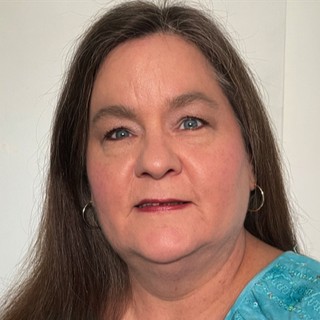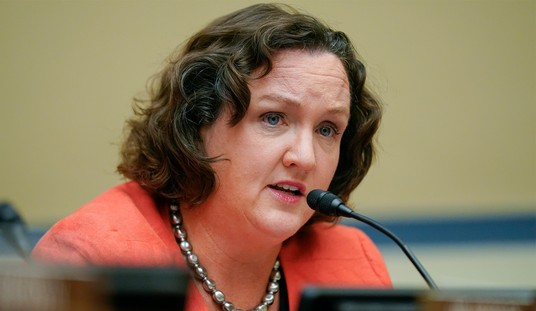On Tuesday, Ukrainian President Volodymyr Zelensky visited Washington, D.C., to do what he does best: ask for money. While there are plenty of House and Senate Republicans who say they will not vote to give Zelensky another dime, there are others who will vote once again to shovel another pile of cash into Ukraine. Of course, there are plenty of things that money could be used for right here at home. One cause, in particular, has been the pet project of Sen. Josh Hawley (R-MO), but money for that was recently stripped out of a federal defense bill. We know the story of Ukraine. This is the story of Coldwater Creek. As a life-long resident of St. Louis County, it's a personal one.
Legislation that would have compensated St. Louis-area residents exposed to radioactive waste was stripped from a federal defense bill, leaving individuals who have suffered rare diseases without government assistance. #moleg #mogov via @Allie_Kite https://t.co/y4uNraBhgo
— Missouri Independent (@MO_Independent) December 7, 2023
If you grew up or lived in the northern part of St. Louis County, Missouri, Coldwater Creek was likely a part of your life. As a kid, if you lived within a bike ride's distance, you played in the creek. As an adult, if you bought a house nearby, you always kept an eye on the creek when it rained heavily. Coldwater Creek runs through the northern part of St. Louis County and empties into the Missouri River. But Coldwater Creek's history has come back to haunt the residents of North County in a big way. Mallinckrodt Chemical Works has been a fixture in St. Louis for over one hundred years, employing hundreds of people. In 1942, at the height of World War II, Mallinckrodt began processing the original Belgian Congo Uranium (U235) as part of the first atomic bomb. The processing took place at Mallinckrodt's location within the city of St. Louis. By the mid-1940s, space to store radioactive waste had run out, and they began to transport the waste to unpopulated parts of North St. Louis County. The waste was stored in bulk containers on the ground and exposed to the elements. It remained largely unattended until the 1970s.
Beginning in the 1950s and running through the 1970s, North St. Louis County saw a population boom. As in many places all over America, young families moved to the suburbs, and the area grew quickly. Because of a combination of wind, rain, flooding, groundwater, grading for new construction, and lax storage, Coldwater Creek rapidly became contaminated with radioactive material. There was an increase in the incidence of bone and lung cancer and leukemia for people exposed to the creek from the 1960s to the 1990s, and even some rare forms of cancer like appendix cancer.
These are the people that Sen. Hawley's legislation would have helped. Instead, Congress will consider sending Volodymyr Zelensky home with another $61 billion. Where has all the money he has received gone? Well, let's see. Ukraine has received $43 billion in security assistance, $23.8 billion in military equipment, $23 billion in humanitarian and economic assistance, and $20 billion in economic aid that strengthens Ukraine's industries, jobs, and exports. There has even been enough to pay Ukraine's civil servants like teachers, healthcare workers, and first responders. Do the math. How far would that money go to helping people who are getting sick and dying due to government radioactive waste, in some cases, literally in their own backyards? While the appropriations process isn't necessarily set up as an either-or proposition, and the decision as to funding for Coldwater Creek doesn't specifically hinge on what gets spent on Ukraine, it's worth noting where the priorities seem to lay with Congress.
I am blocking the Senate from immediately proceeding to the defense bill. Congressional leadership has chosen to abandon the people of Missouri and the nation poisoned by their own government. I’m not going to make it easy on them
— Josh Hawley (@HawleyMO) December 7, 2023
So, while the people of St. Louis County continue to get sick from radioactive waste, Volodymyr Zelensky may just head home with another pile of cash. After the removal of the compensation provision from the bill, Hawley took to social media, stating that he would not be voting for the defense bill unless the provision for St. Louis County was put back in. He also stated:
“Congressional leadership has chosen to abandon the people of Missouri and the nation poisoned by their own government. I’m not going to make it easy on them.”
I didn't play in the creek as a kid, though my friends did. But we lived nearby, and both of my parents were cancer patients. I am glad my senator is hopping mad about this, but once again, Congress has put the citizens of another nation ahead of its own.
BILLIONS for Ukraine - but NOTHING for the thousands of Missourians poisoned by the federal government’s nuclear waste https://t.co/p6eKyvKRvd
— Josh Hawley (@HawleyMO) December 12, 2023














